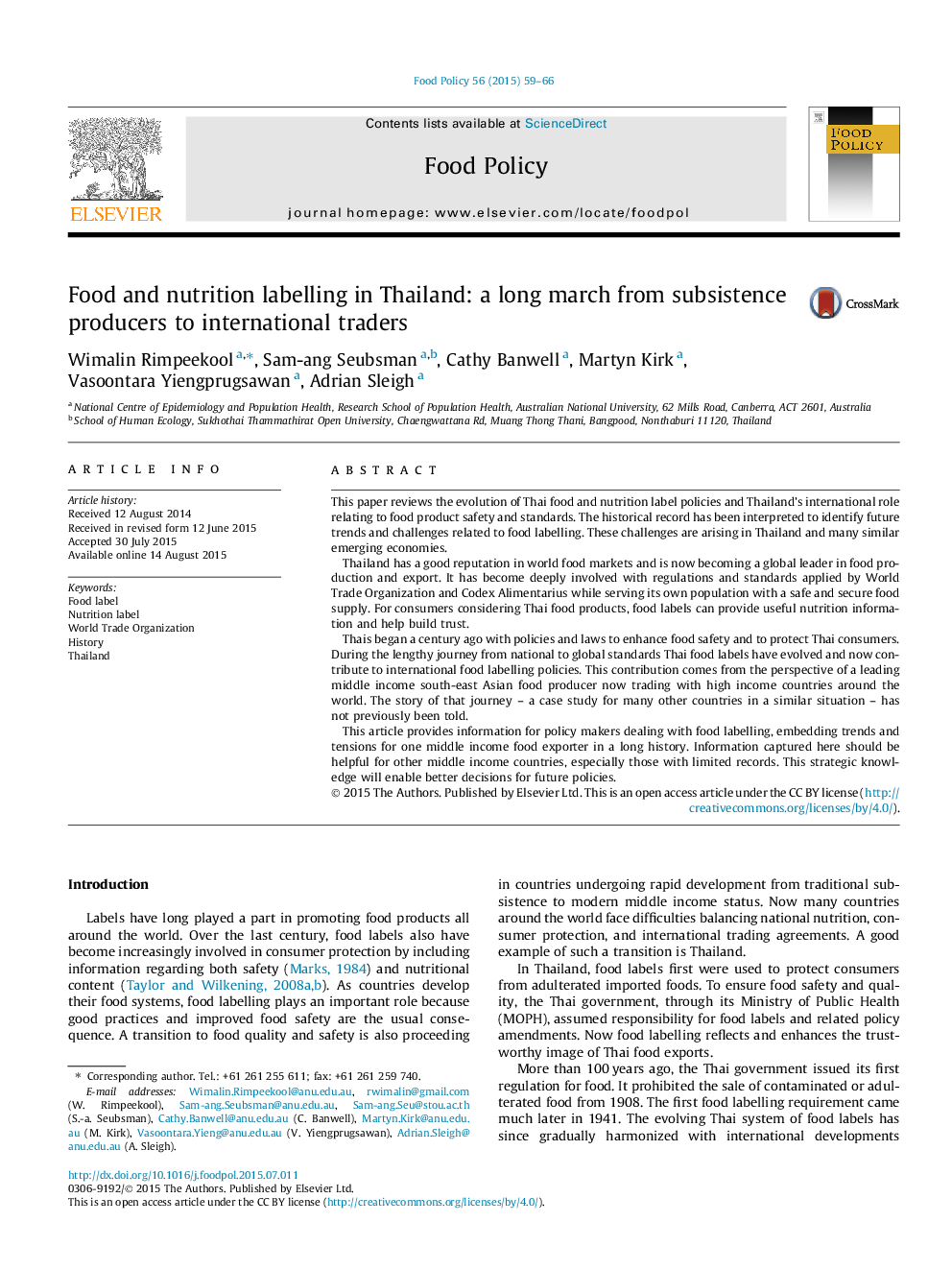| Article ID | Journal | Published Year | Pages | File Type |
|---|---|---|---|---|
| 5070314 | Food Policy | 2015 | 8 Pages |
â¢Thai food labels show transition from closed agriculture to global agribusinessâ¢Thai food quality follows investment in food science and technology after WW2â¢Thai food labels address transition from hunger to plenty and international rulesâ¢It is difficult to harmonize nutrition labels among the countries of SE Asiaâ¢Domestic protection versus global food trade creates tension and new rules
This paper reviews the evolution of Thai food and nutrition label policies and Thailand's international role relating to food product safety and standards. The historical record has been interpreted to identify future trends and challenges related to food labelling. These challenges are arising in Thailand and many similar emerging economies.Thailand has a good reputation in world food markets and is now becoming a global leader in food production and export. It has become deeply involved with regulations and standards applied by World Trade Organization and Codex Alimentarius while serving its own population with a safe and secure food supply. For consumers considering Thai food products, food labels can provide useful nutrition information and help build trust.Thais began a century ago with policies and laws to enhance food safety and to protect Thai consumers. During the lengthy journey from national to global standards Thai food labels have evolved and now contribute to international food labelling policies. This contribution comes from the perspective of a leading middle income south-east Asian food producer now trading with high income countries around the world. The story of that journey - a case study for many other countries in a similar situation - has not previously been told.This article provides information for policy makers dealing with food labelling, embedding trends and tensions for one middle income food exporter in a long history. Information captured here should be helpful for other middle income countries, especially those with limited records. This strategic knowledge will enable better decisions for future policies.
